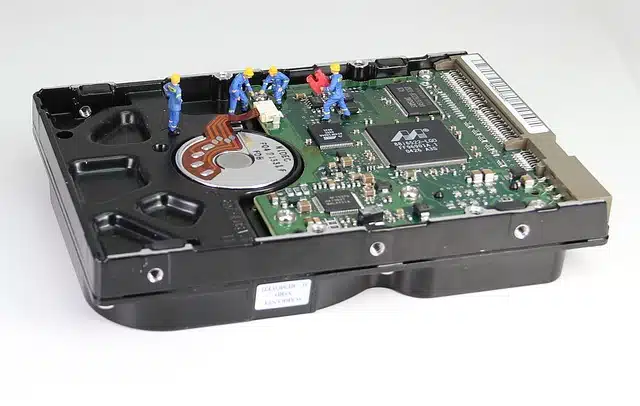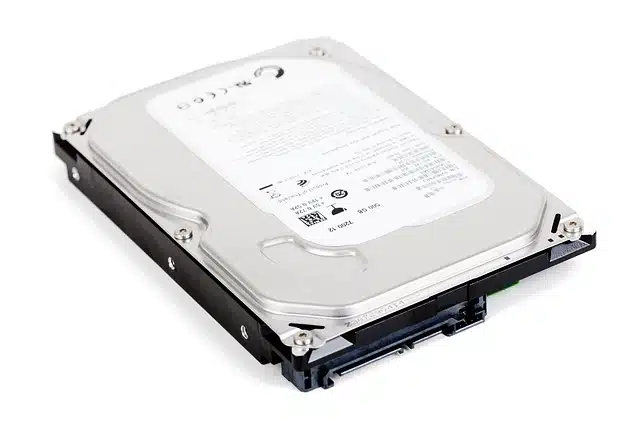
A hard drive is a device that enables the storage of digital information.
A hard drive (also known as a hard drive in some countries) is a device used in computers and other devices to store digital information . Regarding their composition, they have disks that are linked by a common axis and that rotate inside a metal structure, with writing and reading heads on each disk .
Since the creation of the first hard drive in 1956 , these devices have managed to increase their storage capacity while their price has fallen. The flow of information circulating these days requires computer users to have large-capacity hard drives to hold all types of data, from text documents to high-definition movies, including music and photographs.
Components and sectors of a hard drive
Hard drives communicate with the rest of the components through a standardized interface such as IDE (also known as ATA ), Serial ATA , FC or SCSI . The choice of this interface depends on the type of computer (whether it is a workstation, a server , etc.).
The logical structure of the hard drive includes differentiated sectors. The boot sector or Master Boot Record houses the partition table, while these partitions contain the file systems.

There are different types of hard drives.
How to choose a model
When choosing a hard drive for a computer , you must consider the average read and write time (how long it takes to write or read data), the average search time, the average access time and the transfer rate ( how long it takes to transfer data to the computer), among other factors.
Major hard drive manufacturers include Seagate , Western Digital , Quantum , Hitachi , Toshiba , and Samsung .
Differences between hard drives and SSDs
For several years now, hard drives have seen the birth of their greatest (and perhaps only) opponent: SSDs , the acronym for Solid State Drive . Without going into technicalities, it is a very different technology from the first, but not necessarily revolutionary in itself, since it is not substantially different from flash memories or RAM modules. Hardware experts anticipated their creation long before they were launched on the market, knowing that the only obstacle to their manufacture would be the price.
Even today, when solid state drives are relatively popular, no one has managed to offer the market a product that can compete with hard drives in capacity and price . They rely, on the other hand, on their incredible reading and writing speed , which exceeds that of their old competitors by a minimum of three times (they are at least 300% faster).
Among its other advantages, we find energy savings ; The reason is that they do not have moving components, so they use a much smaller amount of electricity to operate. This has a direct impact on the heat they produce, which is also very lower, making mobile devices such as notebooks and tablet PCs more comfortable to use when they are in contact with the body. As if these two characteristics were not enough strong points, their compact quality makes them much more resistant to bumps and falls; Put into numbers, they are an average of five times stronger.
At first glance, a mid-range computer with an SSD installed can be transformed in an impressive way, considerably reducing the loading times of the operating system and programs, and offering an overall smoother and more pleasant experience for the user. However, given the large price difference, favorable for hard drives, most people refuse to take the leap, valuing not only the economic aspect but the greater capacity they obtain with traditional technology.
